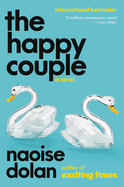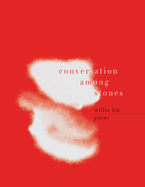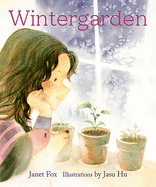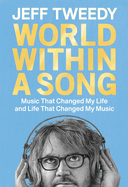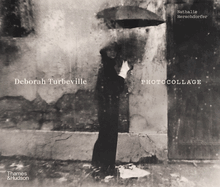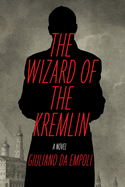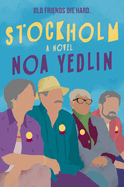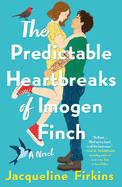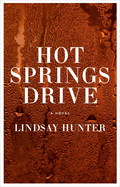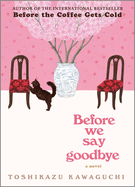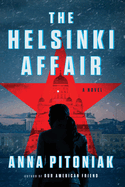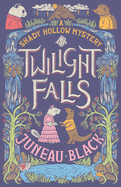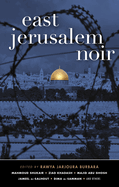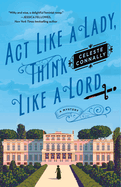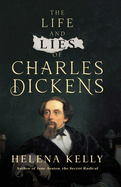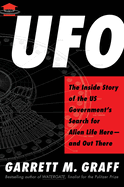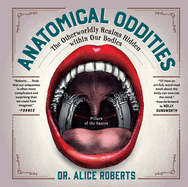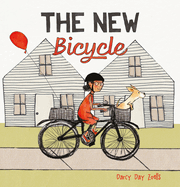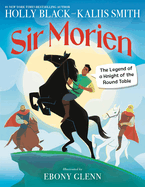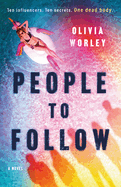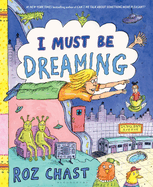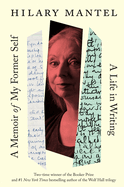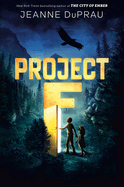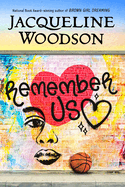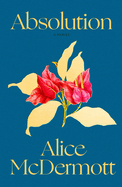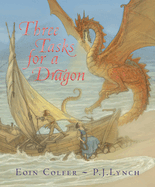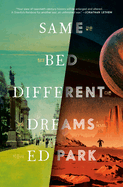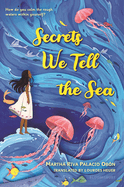Friday, November 24, 2023
This week, we review Willie Lin's graceful debut, Conversation Among Stones, whose 39 poems "adopt the language of art, nature, and religion while musing on belonging and fate"; and the monograph Deborah Turbeville by Nathalie Herschdorfer, which "convincingly argues for Turbeville's place among the finest photographers of her generation"; plus Janet Fox's second picture book, Wintergarden, "a lyrically hopeful story" about a girl who learns green-thumb lessons from her patient mother, with artist Jasu Hu's "exquisite spreads, resulting in synchronous perfection." And so many more!
Don't miss The Writer's Life with Ahmed Naji, whose novel Using Life made him the only writer in Egyptian history to have been sent to prison for offending public morality, and whose new book, Rotten Evidence, chronicles that experience.
The Happy Couple
by Naoise Dolan
When is a rom-com not a rom-com? When it's written by Irish novelist Naoise Dolan (Exciting Times). Her word-perfect sophomore effort, The Happy Couple, contains the requisite romance and comedy, but unlike a traditional rom-com, it carries an element of actual suspense as the couple's fate seems not preordained but truly precarious.
The halves of the nominal couple are Celine, a 26-year-old concert pianist who teaches to make ends meet, and Luke, a 28-year-old communications strategist at a tech firm. They share an apartment in Dublin and, as the novel opens, have just gotten engaged. Celine tells Luke that she feels obliged to invite her ex, Maria, to their engagement party; Luke isn't happy about this. Celine insists that Maria won't come, but she does; Luke is less happy. At the party, Luke vanishes and won't answer Celine's texts. Now Celine is unhappy.
The Happy Couple is written with witheringly dry wit and ceaseless innovation (a woman sitting in another's lap is a "woman-woman compound"). Dolan lets key players take turns with the point-of-view reins, among them Celine's sister, who knows that Luke left the party with Maria, and Archie, Luke's best friend and long-ago lover, who carries a torch for the groom-to-be; that Archie has been tapped for best man is beyond inopportune. Love's inconvenience is indeed the novel's preoccupation, alongside love's obverse: loneliness. As the pining Archie concludes with characteristic nitpickiness, loneliness isn't "having no one" but "the gap between what you hoped for and what you got." --Nell Beram, author and freelance writer
Discover: Romantic and comedic but not a rom-com, this witheringly dry-witted sophomore novel centers on two cohabitating Dubliners, one of whom disappears from their engagement party.
The Wizard of the Kremlin
by Giuliano da Empoli, transl. by Willard Wood
In The Wizard of the Kremlin, Giuliano da Empoli's hypnotic novel-cum-memoir, a former political adviser to Vladimir Putin emerges from self-imposed exile to tell his story as the autocrat's top spin doctor. The book, translated from the French by Willard Wood, is a curious blend of truth and fiction: da Empoli introduces Vadim Baranov, the fictional doppelgänger of real-life Vladislav Surkov, Putin's longtime political and media adviser.
In the novel, Baranov is retired from public life, but a persistent researcher (the narrator) finds the legendary "new Rasputin" and asks for his story. À la Interview with the Vampire, Baranov diffidently indulges him in an epic monologue of personal and political history abounding in caustic yet sage bon mots. Indeed, da Empoli's Baranov is deeply cynical: "the Kremlin doesn't offer happiness, but it does make it impossible to be happy anywhere else" is but one example from a legion of Machiavellian pronouncements. Da Empoli leavens this with Baranov's discursions into the mesmerizing Ksenia, a fleeting, torturous presence who owns his heart but guards her own. Interlaced are Baranov's accounts of Putin's machinations as he catapults from head of the FSB (successor to the KGB) to the "tsar" of all Russia.
Da Empoli's portrait of Putin (in the voice of Baranov) is sympathetic but not overly so. As Baranov sees his golden glow fading in Putin's eyes, he understands the excessive cost of his choices: "A prince's confidence is not a privilege but a death sentence." The Wizard of the Kremlin is smart, sharp, and timelier than ever. --Peggy Kurkowski, book reviewer and copywriter in Denver
Discover: A Russian television producer rises to the top echelons of power as media spin doctor to Vladimir Putin in this fascinating fictional portrait of sycophants, strongmen, and manufactured reality.
Stockholm
by Noa Yedlin
Some people have the gall to die at inopportune times, or so one might conclude from Stockholm, Noa Yedlin's diabolically entertaining novel, published in Israel in 2016.
Nearing 70, Avishay is an economist in Tel Aviv and a leading Nobel candidate. Roughly 10 days before the prize announcement, however, he dies. To receive the Nobel, he has to be alive. His death complicates a scheme by rival Yehuda, who, despite making millions by inventing a device that quickly opens bags, feels overshadowed by Avishay. He's trying to publish a book, and thinks sales would benefit from a foreword by a Nobel winner. So he and others in their cohort decide to keep Avishay's death secret until after the prize announcement.
Yedlin has fun exploring the effect of Avishay's death on that cohort. Among them are Zohara, who has had an affair with Avishay; Nili, a retired pediatrician; and Amos, a fellow economist who was as celebrated as Avishay until "Avishay suddenly left Amos in the dust." Add to the mix a younger woman whom Avishay may have impregnated, and a bicyclist who fears he killed Avishay when he ran into him as the friends moved his body from his apartment (don't ask), and the result is a madcap adventure. Yedlin even slips in philosophical insights: Yehuda "sensed something unacknowledged about the nature of truth itself: no one wants it, no friendship can withstand it." Cynical? Sure, but not out of place in this zany book. --Michael Magras, freelance book reviewer
Discover: In Stockholm, Noa Yedlin tells the madcap story of an economist who dies 10 days before the Nobel Prize announcement and the friends who pretend he's still alive to preserve his chance of winning.
The Predictable Heartbreaks of Imogen Finch
by Jacqueline Firkins
Quirky misfits struggling to fit in, find love, and create meaningful lives are hallmarks of the tenderly irresistible rom-coms written by Jacqueline Firkins (Marlowe Banks, Redesigned; How Not to Fall in Love). She continues in this vein with The Predictable Heartbreaks of Imogen Finch, where a lovable, down-on-her-luck heroine intends to break the curse of a prediction made by her pseudo-clairvoyant, widowed mother.
When Imogen was six years old, her mother forecast that Imogen would "never be first at anything." Twenty-two years later, Imogen still lives with her mother in Pitt's Corner (population: 347) and juggles six jobs. Imogen--always a nominee, a runner-up, or romantically dumped--struggles to extricate herself from what's become a self-fulfilling prophecy. She just can't seem to get her life on track. With 17 exes in her past, Imogen's second-place fate seems interminable.
But when video travel blogger Eliot Swift--Imogen's first love, who ghosted her--returns to town for a funeral, old feelings are rekindled, and romantic sparks fly. Eliot spurs on Imogen, championing her to shed her insecurities and rebuild her self-esteem in order to finally break the curse. The trouble is, Eliot is a restless and wandering free spirit who has demons of his own. Can and will he stay the course with Imogen this time around? Or will he break her heart yet again? Playfully unpredictable plot twists and complications--along with steamy romance--infuse Firkin's charming, feel-good story of hopeful second chances. --Kathleen Gerard, blogger at Reading Between the Lines
Discover: The Predictable Heartbreaks of Imogen Finch is a charmingly fresh, steamy romcom about a downtrodden 28-year-old whose romance with an old friend empowers her with confidence and hope.
Hot Springs Drive
by Lindsay Hunter
Lindsay Hunter (Eat Only When You're Hungry; Ugly Girls) starts her enthralling Hot Springs Drive with a house that witnesses a murder. She then introduces readers to the victim, Theresa, asking them to also witness her murder. There's no pause for breath as Hunter shifts to Theresa's best friend, Jackie, reflecting on their first encounter in a hospital maternity wing: "I loved her immediately. Isn't that how all the great hatreds begin?" This sets up a tightly paced story of two families' undoing. Suburban motherhood and fading marital sparks spur the friends to join a weight-loss group, where Jackie's obsessive food consumption shifts to restriction that alters her body and ability to keep angry jealousy of Theresa's contentment at bay.
In sharp, heady prose, Hunter carries readers from character to character (Jackie's four boys, Theresa's daughter, both husbands, interstitials from those who aren't family members) as Jackie begins an affair with Theresa's husband while both neglecting her children and oppressively fostering their worst qualities. Hunter shapes unsettling dread in Jackie's oldest son, Douglas, whose unhealthy attachment to his manipulative mother culminates in a violent act, asking readers whether horrific actions are solely the responsibility of the doer or attributable to a tangled web of influence. Hunter builds to and looks back on an inciting incident in an urgent novel that is a searing study of banality and monstrosity, desire and control--and a story about women, their families, breaking points, and "the thing no one wants to admit: a home is held together by care, and quite often the one who cares is... well, you know." --Kristen Coates, editor and freelance reviewer
Discover: A sharp character study blends with a tense domestic thriller in this absorbing novel about mothers, obsession, and consequences.
Before We Say Goodbye
by Toshikazu Kawaguchi
Toshikazu Kawaguchi (Before the Coffee Gets Cold) invites readers back into the magical Funiculi Funicula Café in Before We Say Goodbye. The fourth book in the Before the Coffee Gets Cold series, which can also be read as a stand-alone, introduces a new cast of characters to a once-in-a-lifetime opportunity: a chance to go back in time. Visitors, drawn into the café by rumors of the special time-travel chair in the corner, are presented with the opportunity to return to the past under a strict set of rules. For instance, there is nothing visitors can do to change the present, and they can potentially turn into ghosts who will occupy the chair forever: these are the kinds of conditions they will accept for a second chance.
An absent husband who seeks one last conversation with his wife before a life-changing accident, a grieving pet parent who yearns to see her dog one more time, a woman wondering what made her ex-boyfriend change his mind, and a regretful daughter who craves amends with her father are all hopeful that they can tell their loved ones how they feel before it's too late.
Before We Say Goodbye captures the beauty of facing the past and finally being able to let go. Wistful, hopeful, and heartbroken, each character's emotional journey is a poignant reminder that life is fleeting--but love isn't. Each must decide if it's worth taking the risk to say goodbye, even if it may be their last. --Clara Newton, freelance reviewer
Discover: Before We Say Goodbye immerses readers in a time-traveling journey of four café customers who explore a magical opportunity to visit loved ones again.
Mystery & Thriller
The Helsinki Affair
by Anna Pitoniak
The Helsinki Affair, the riveting fourth novel from Anna Pitoniak, brings a female perspective to a classic Cold War spy narrative and explores the complex, loving loyalties between a daughter and her father.
Pitoniak (Our American Friend) opens her novel with deputy CIA station chief Amanda Cole, ambitious and bored with her posting in Rome. When a Russian source tips her off that U.S. Senator Bob Vogel's life is in danger, Amanda urges her superiors to take action. They refuse, and Vogel ends up dead. As Amanda digs into the case, she uncovers corruption, blackmail, stock-market manipulation, and a potential link to her own father, career agent Charlie Cole.
Pitoniak weaves a riveting double-helix narrative that toggles back and forth between Amanda's childhood in Helsinki, when her parents' marriage broke up, and her present-day efforts to chase down the people responsible for Vogel's death. Charlie, now pushing paper at Langley with retirement in his sights, is forced to confront his past mistakes (personal and professional) as Amanda probes for answers. Pitoniak paints a nuanced portrait of their loving father-daughter relationship, but lets her characters be complex: Amanda's impatience and Charlie's moral cowardice get some airtime. Amanda's investigation also gets help from an unexpected quarter: Kath Frost, a no-nonsense agent whose sharp mind and unvarnished perspective make her a valuable colleague (and a lot of fun to read about).
Twisty and engaging, The Helsinki Affair is both a female-centric thrill ride full of spycraft and a sensitive meditation on love and conflicting loyalties. --Katie Noah Gibson, blogger at Cakes, Tea and Dreams
Discover: Anna Pitoniak's riveting fourth novel follows a CIA agent digging into an assassination case with links to Cold War-era Helsinki and her own childhood.
Twilight Falls
by Juneau Black
Jocelyn Cole and Sharon Nagel, writing as Juneau Black, return to the world of Shady Hollow in Twilight Falls, their engaging fourth animal-centric entry in the Shady Hollow Mystery series. Newspaper reporter Vera Vixen and her beau, police chief Orville Braun, are enjoying a day out at the titular falls when they witness an argument between otter Shelby Atwater and his son, Jonah, who's dating a local beaver. The day turns from sour to tragic when Shelby, adamantly opposed to his son's interspecies relationship, goes over the falls and disappears. Vera and Orville immediately launch an investigation. Though they can't find Shelby's body, it seems clear this was a murder. But as Vera soon learns, not everything is what it seems.
Black (Shady Hollow) paints a lovely picture (sans murder, of course) of spring in Shady Hollow: new green leaves, the annual Apple Blossom Walk, the new gourmet popcorn cart operated by hedgehog Muriel. Familiar characters--such as Lenore, the bookselling raven (Vera's best friend), and Joe, the moose who runs the local café--return in their supporting roles. Vera and others enjoy several gourmet meals prepared by panda restaurateur Sun Li, and Black introduces a few new characters, including a hawk who helps out with the investigative work. The nods to each animal's particular strengths (as well as modified words like "pawkerchief") are delightful, and the mystery, though fairly cozy, contains some surprising twists. As always, Vera's nose for clues wins the day, leading to a conclusion that will delight mystery fans and animal lovers alike. --Katie Noah Gibson, blogger at Cakes, Tea and Dreams
Discover: Juneau Black's fourth animal-centric novel takes readers back to Shady Hollow for an engaging puzzle of a mystery.
East Jerusalem Noir
by Rawya Jarjoura Burbara, editor
Imagining the past, present, and future of a contested West Bank territory, East Jerusalem Noir, edited by Rawya Jarjoura Burbara, showcases 13 original stories by writers who live within its occupied borders and possess pride in the rich cultural heritage of their beloved home. These remarkable pieces, translated from the Arabic by eight translators, are steeped in an authenticity that comes with experiencing firsthand the ruthless erosion of one's cherished freedoms.
Editor Rawya Jarjoura Barbara calls Jerusalem, referring to its multilayered, ancient history, "the city that has embraced so many prophets." This acclaimed author braces readers in the book's introduction for powerful fiction that radiates with the brutal reality of an occupation impacting every facet of residents' lives, including worshipping at the Al-Aqsa Mosque, traveling to work through choked checkpoints, and enduring random humiliating searches.
"In An Extraordinary City," written by Rahaf Al-Sa'ad and translated by Nancy Roberts, opens in the predawn hours at the very moment soldiers from the Israeli occupation army arrive at a car mechanic's home to demolish it. The High Court has ruled that his dwelling is too "near the wall" and, therefore, a threat to public security. When the soldiers blow it up, they destroy the life savings and dreams of the proud mechanic, Abu Muhammad, and his distraught wife and their frightened children.
This collection is part of an award-winning series of anthologies set in cities around the world. Despite the raw, often despairing subject matter, East Jerusalem Noir is an awe-inspiring work of fearless urban literary fiction offering readers intimate exposure to people and places they might otherwise never encounter. --Shahina Piyarali, reviewer
Discover: East Jerusalem Noir is an anthology of 13 original stories, translated from the Arabic, by writers who live in the contested West Bank territory of East Jerusalem.
Act Like a Lady, Think Like a Lord
by Celeste Connally
Celeste Connally's smart Regency-era mystery, Act Like a Lady, Think Like a Lord, introduces a bold amateur sleuth who, like her creator, isn't afraid to challenge patriarchal structures and enjoy herself in the process.
Lady Petra Forsyth is used to doing as she pleases: riding astride, running her father's household, and answering to no one. She's publicly declared she'll never marry. But when Petra hears that a friend has died under mysterious circumstances, she and her best friend, Lady Caroline, start sniffing around, and they uncover the existence of a country estate where women who are struggling (or simply headstrong) are locked away and subjected to horrific medical "experiments." Petra and Caroline--along with Petra's maid Annie and her frenemy, Duncan Shawcross, recently returned to London--hatch a plan to rescue the women, but they will face danger (both physical and emotional) in the process.
Connally (Lineage Most Lethal, writing as S.C. Perkins) creates an appealing protagonist in Petra, whose curiosity and moxie are matched by her kindness. Having lost her fiancé to an accident just before her wedding, Petra believes in love (just not for herself), but is unwilling to give up her independence and turn her property over to any man. Petra's quick-witted maid, Annie, also proves vital to the eventual solving of the case; Connally muses thoughtfully on the limitations of being a woman in various social positions. But the narrative zips along with wit and plenty of surprises--including a cliffhanger that will leave readers eager for Petra's next adventure. --Katie Noah Gibson, blogger at Cakes, Tea and Dreams
Discover: Lady Petra Forsyth solves her first case with wit and aplomb in Celeste Connally's smart, feminist Regency-era mystery.
Biography & Memoir
World Within a Song: Music That Changed My Life and Life That Changed My Music
by Jeff Tweedy
Jeff Tweedy (How to Write One Song), who has been making music for decades, has countless fans who know he can write songs that speak to them on many levels. He and his band Wilco have written some of the most beautiful songs of the last quarter century. In World Within a Song, his third book, Tweedy takes his readers on a beautiful, effervescent, and introspective journey, describing 50 songs that have, in one way or another, shaped him as a musician and that "have taught me about how to be human." Sandwiched between these quick essays are snapshots that he refers to as "Rememories," little morsels of his life that have shaped his understanding of himself, music, and the world around him.
Tweedy's writing is concise and conversational: readers will feel like they've joined Tweedy for beers at a dive bar, with infinite quarters for the jukebox, and that nothing is making him happier than sharing his love (and disdain) as these songs float across the ether. It's a book that's easy to fall in love with. Even those who aren't aware of Jeff Tweedy can enjoy the kind and illuminating ways in which he presents his knowledge of music, its importance to humanity, and its survival. Songs, after all, are ephemeral sound waves that bounce around and serve as reminders that another person has felt a similar way. As Tweedy puts it: "It's a wonderful feeling to have a hand on your shoulder. What else is there?" --Dominic Charles Howarth, book manager, Book + Bottle
Discover: The frontman of Wilco, Jeff Tweedy, presents a museum of his life by dissecting 50 songs and considering how music reminds readers that they are not alone.
The Life and Lies of Charles Dickens
by Helena Kelly
Few authors have ever approached the iconic status of Charles Dickens, the most successful and prominent author of his day, whose work engendered copious review and commentary, and whose personal life inspired intense curiosity. Autobiographical interpretations of his literary production were a common approach to Dickens scholarship of the era, which the author directed and encouraged, in part through sanctioning an official biographer, his friend John Forster. Furthermore, Dickens "put considerable effort," Helena Kelly writes in The Life and Lies of Charles Dickens, "into controlling what people would think of him after his death."
Kelly (Jane Austen, the Secret Radical) avails herself of every corner of the Dickens archive, some of which is only more recently available, and doesn't allow herself to be misdirected by either the repeated falsehoods of earlier biographers or by Dickens himself. She skillfully makes her case across Dickens's life and work to show how he contrived to control the narrative around his life and describes "his relief at having found a way to write about personal matters while protecting his brand, the comforting knowledge that Forster was already primed with a selective version of his life which, while not contradicting what was already known, guided people away from all the really sensitive topics."
Kelly uncovers and explains likely truths about Dickens's birthplace, his parents' financial struggles, his multiple infidelities, his "borrowing" of literary material, and his medical conditions. This detailed and well-documented study, confidently and entertainingly written, is perfect for Dickens's fans and literary historians alike. --Elizabeth DeNoma, executive editor, DeNoma Literary Services, Seattle, Wash.
Discover: Helena Kelly presents never-before-discovered facts about the life of Charles Dickens that he kept from his biographies and the press of the day.
History
UFO: The Inside Story of the U.S. Government's Search for Alien Life Here--and Out There
by Garrett M. Graff
The answer to the question of whether or not intelligent life exists elsewhere in the universe is, as one scientist interviewed in Garrett M. Graff's UFO puts it, one for which "either possibility boggles the mind." It's this issue that animates the narrative--and the significance--of how we interpret the continued existence of what are alternately termed "unidentified flying objects" or "unidentified aerial phenomena."
Graff (Watergate; The Only Plane in the Sky; Raven Rock) excels at taking complex questions, locating them in their historical context, and making them both intelligible and compelling. UFO is no exception. Graff skillfully takes readers through the history of "flying saucers" and other sightings around the world in the post-World-War-II era of Project Blue Book, through the Cold War and space race with the Soviets, to NASA and beyond, including eras in which the Pentagon denied that any research into the subject was taking place. He examines the meaning-making efforts, be they conspiracy theories or serious military or scientific ones, to find evidence and answers to the most pressing questions about our position in the universe and possible encounters with other beings. Additionally, he provides a healthy sense of perspective about our own relative position in the universe.
Graff's book is perfect for anyone interested in the history of space exploration and military history, the latter because it's assumed that much unexplained phenomena is actually either new technologies in development by U.S. adversaries or the U.S. military itself, with all the necessary secrecy that entails. --Elizabeth DeNoma, executive editor, DeNoma Literary Services, Seattle, Wash.
Discover: UFO is a deeply researched exploration into one of humanity's most compelling questions--whether or not we are alone in the universe and how much of the answer the U.S. government knows.
Science
Anatomical Oddities: The Otherworldly Realms Hidden Within Our Bodies
by Alice Roberts
With infectious delight and humor, Alice Roberts (Evolution: The Human Story) discusses structures of the human body in Anatomical Oddities. A full spread is devoted to each of the nearly 60 body parts Roberts addresses, with one page containing text and a small diagram locating the structure on the body, and its facing page containing an illustration drawn by Roberts herself. Readers are drawn into what the subtitle calls the "Otherworldly Realms Hidden Within Our Bodies" through the book's playful tone. And with instructions about where to press fingers to feel bone or how to flex limbs to feel muscle, Roberts invites readers to find these places on their own bodies.
Roberts also discusses the etymologies of medical and colloquial terms, which she often uses to discuss the history of anatomical discovery, including ancient and medieval theories later proven wrong. Many of these etymologies inspire Roberts's illustrations, like one of the thyroid as a Bronze Age shield frieze; she speculates this is the reason the Roman anatomist Galen called this anatomical structure thyreoeides, or "shield-shaped." She also depicts the cauda equina, the bundle of nerve roots at the end of the spinal cord, as a horse's tail. Respect for centuries of anatomical discovery pervade the book, but Roberts is also not above some tongue-in-cheek teasing of the predominantly male early anatomists who applied the term "mammillary" to any structure remotely resembling breasts. Whether read in a single sitting or in bite-sized explorations, this book is sure to delight. --Dainy Bernstein, postdoc in children's literature, University of Illinois Urbana-Champaign
Discover: Anatomical Oddities combines the playful and the educational for a rollicking ride through the complexity of the human body and of scientific discovery.
Art & Photography
Deborah Turbeville: Photocollage
by Nathalie Herschdorfer
Deborah Turbeville (1932-2013) made her living--and her name--as a fashion photographer. Yet is there a photographer whose style seems less suited to the glossies? The monograph Deborah Turbeville: Photocollage by Nathalie Herschdorfer fulsomely celebrates this seeming contradiction and seeks to place Turbeville not only among her better-known fellow fashion photogs (Helmut Newton, Irving Penn) but among the finest photographers of her generation.
Herschdorfer (Body) bundles Turbeville's work into five sections separated by essays from various contributors. Throughout the book, T-pins, staples, and tape are fixtures of Turbeville's work. Many photos are in soft focus (some would say blurry). Several have deliberate-looking scratches. People's heads may be cropped. Settings tend to be disused properties and outposts. All of this, plus the fact that Turbeville worked largely in black and white and sepia tones, makes her photographs, as Herschdorfer points out, fairly impervious to dating. They're also eerily and ethereally beautiful.
The monograph includes images from Turbeville's notorious first series for American Vogue, from 1975, for which she photographed her models at a deserted Manhattan bathhouse. (Vogue got angry letters.) Also featured are images from a series commissioned by a fan of Turbeville's: Jacqueline Onassis. Then working in publishing, Onassis arranged for Turbeville's access to Versailles, and her collected photos of the palace's withered grandeur appeared in her 1981 book, Unseen Versailles. If that book failed to establish Turbeville as more than a fashion photographer--the artist's dream in her lifetime--then Deborah Turbeville may do the job posthumously. --Nell Beram, author and freelance writer
Discover: This monograph convincingly argues for Turbeville's place not only among her better-known fellow fashion photogs but among the finest photographers of her generation.
Poetry
Conversation Among Stones
by Willie Lin
The 39 poems in Willie Lin's graceful debut, Conversation Among Stones, adopt the language of art, nature, and religion while musing on belonging and fate.
Lin, a Kundiman Fellow born in Beijing and now based in Chicago, commemorates Tiananmen Square in "Brief History of Exile," in which a man sees "the afterimage of the night sky burning/ from his room by the bridge, the tanks and young men/ riding into the city square at last...." The notion of exile is a link to the exquisite ekphrastic poem "After Masaccio's The Expulsion from the Garden of Eden," where Eve's wailing face depicts "sound as wound." Christian theology resurfaces in later vocabulary: "Apocrypha," "Eternity," and "Numinous." Philosophy is represented by three poems titled "Apologia" (defense of beliefs) and another three titled "Teleology" (purpose).
Lin's meditations, which include dreams and elegies, can be melancholy. "Too prone to darkness/ all my life I have asked for a task,/ a purpose to survive me," she admits. However, she equates resignation with an acceptance of reality: "given stone, we should love/ stone, given fire,/ we should learn to love fire." The collection's title is apt for the exchange of ideas--not just the poet's within herself as she ponders memory and identity, but also engagement with other poets by borrowing individual lines and echoing Shakespeare.
Lin employs alliteration, internal rhyme, and wordplay: "my head like a calyx, and the corolla, whose corollary/ is language." Birds, insects, leaves, and snow compose the natural imagery in this varied and accomplished first collection. --Rebecca Foster, freelance reviewer, proofreader and blogger at Bookish Beck
Discover: Chinese American poet Willie Lin adopts the language of art, nature, and religion and muses on memory, identity, and fate in her graceful debut collection.
Children's & Young Adult
Wintergarden
by Janet Fox, illus. by Jasu Hu
Janet Fox's second picture book, Wintergarden, is a lyrically hopeful story about a young girl who learns nurturing green-thumb lessons from her patient mother. Artist Jasu Hu augments Fox's smooth text with exquisite spreads created with watercolor, pencil, and mixed media, resulting in synchronous perfection.
"In winter/ when it snows/ my mama grows/ a garden," Fox's idyll opens. While soft flakes swirl beyond the apartment windows, mother and child ready the kitchen windowsill with green pots. The girl is eager to help: Mama "lets me put some [seeds] in the soil/ because my fingers are/ so nice and small." While the seeds gather energy to emerge, the family stroll the city streets, enjoying their wintry wonderland. At home, the girl watches and waits, anticipating the oregano, parsley, and baby greens about to become sprouts. And then the "plants grow fast," creating nourishment for everyone to enjoy. Soon enough, they "need more seeds!" and "This time I get to pick the packets," the girl revels.
Fox's enchanting verses deftly relay multiple sensory descriptions in just a few words. Hu (All You Need) transforms every spread into an inviting mise-en-scène, inserting subtle enhancing details such as tiny symbiotic bugs to help roots root. Fox (Volcano Dreams) appends "How to Grow Your Own Wintergarden" directions at book's end, presented as an easy-to-follow guide, including further suggested reading; Hu adds the girl and her always-nearby pooch, diligently working together to make their next garden grow. Fox realizes that winter may sometimes feel somberly isolating, but her literary response is a welcome, nourishing antidote. --Terry Hong
Discover: Author Janet Fox and artist Jasu Hu create a symbiotically exquisite idyll about an urban family and their nourishing winter garden.
The New Bicycle
by Darcy Day Zoells
A bike ride leads not only to fresh perspectives on life but to entirely fresh horizons in The New Bicycle, a visually fantastical but temperamentally down-to-earth picture book from illustrator Darcy Day Zoells, here embarking on her maiden voyage as an author/illustrator.
On its own, Zoells's text couldn't be more reasonable: it describes the experience of young Mari, who has just received a new bike that's "bigger, bolder, and brimming with possibilities." Mari is probably not the first kid to observe that "when she pedaled fast, her new bicycle nearly flew," but unlike Mari, most young readers don't have a house in their neighborhood that's supported by what look like the feet of a giant bird. And while Mari is probably not the only kid with a bicycle bell that "seemed to sing 'hello!,' " readers are unlikely to find themselves biking, as Mari does, past a stack of three houses, the middle one upside down. These are just two of the surreal sights that greet Mari as she powers ahead on her new bike, chasing experiences.
Mari's journey is recorded in clean black lines and a matter-of-fact color scheme that reserves its boldest accents for small but key details: red balloons at what looks like an open-door zoo, the green boat onto which Mari takes her bike so she can tow an elephant standing in a seaworthy yard, and so on. It's all in a day's ride, The New Bicycle hints, for those whose world is only as limited as their imaginations. --Nell Beram, freelance writer and YA author
Discover: Adventure is all in a day's bike ride for the girl at the center of this visually fantastical but temperamentally down-to-earth picture book.
Sir Morien: The Legend of a Knight of the Round Table
by Holly Black and Kaliis Smith
In this pleasingly stylized, diverting picture book adaptation of a 13th-century Arthurian tale that belies the commonly held belief that all knights were white, young readers are introduced to the romance of the sword-fighting, quest-seeking genre.
Brown-skinned Prince Morien, son of a North African princess, has not seen his Knight of the Round Table father, Sir Aglovale, since the man went on a quest and never returned. So, after a thrilling childhood of taming dragons, surfing with crocodiles, and vanquishing "every last vegetable on the dinner table" (his daredevil mother accompanying every swashbuckling step), Morien sets out on his own quest to find his father. But questing is not all fun, games, and subduing dragons: "I miss my mom. I hate the food. This is hard." Plus, everyone he meets wants to fight him. When he finally meets a knight he can't beat--nor can the knight beat him--the knight's pal, Sir Gawain, declares it a draw and decides Morien should join forces with himself and Sir Lancelot.
In the funny, fast-paced Sir Morien, beloved and prolific fantasy writer Holly Black (Spiderwick Chronicles; Folk of the Air trilogy) and poet Kaliis Smith (Finger and Thumb) bring far-off legends into relatable immediacy. Gifted illustrator Ebony Glenn (Mommy's Khimar) uses earth tones to provide an old- (old-) timey feel, while zippy gem accents create depth. Glenn's characters reveal worlds in the slightest digital strokes--notice Gawain eye-rolling at Lancelot's ego. What an exhilarating way to begin learning about the Knights of the Round Table! --Emilie Coulter, freelance writer and editor
Discover: Droll humor and thrilling sword fights abound in this fun Disney-esque adaptation of a King Arthur legend belying the common belief that all knights were white.
People to Follow
by Olivia Worley
A group of social media stars on an isolated island are forced to reckon with their pasts in this unnerving, tense YA thriller that exposes the dark side of influencer culture.
Ten influencers--including 18-year-olds Kira, a fitness influencer; Max, a YouTube documentarian; Logan, a fallen TikTok star; and Elody, a "hot girl" whose viral photos launched her into stardom--are invited to a remote private island to participate in a reality TV show called IRL. For three weeks, the social media stars will give up their phones to see what happens when they disconnect from their digital lives. When one of the content creators is found dead, it ignites suspicion among the rest. Meanwhile, their mysterious "Sponsor" is threatening to "cancel" them if they don't reveal their secrets. After a second creator is murdered, the influencers must figure out who's trying to expose them before another one of them is cut down.
In People to Follow, debut author Olivia Worley cleverly exposes the dark side of being an influencer, including the pressure content creators are under to be "living, breathing brands," and how it can lead to "feeling like a product instead of a person." These revelations and the influencers' secrets surface at a fast clip through the unreliable perspectives of four of the creators, building tension that's reinforced by an isolated setting--"the kind of place where you say and do wild things"--and ominous weather. A provocative take on privilege, accountability, and the power of influence. --Lana Barnes, freelance reviewer and proofreader
Discover: A group of social media stars on an isolated island are forced to reckon with their pasts in this unnerving, tense YA thriller that exposes the deadly side of influencer culture.
Shelf's November Stars
The Writer's Life
Reading with... Ahmed Naji
 Ahmed Naji is a writer, journalist, documentary filmmaker, and criminal. His novel Using Life made him the only writer in Egyptian history to have been sent to prison for offending public morality. He is also the author of the novels Tigers, Uninvited, and Happy Endings. Naji has won several prizes, including a Dubai Press Club Award, a PEN/Barbey Freedom to Write Award, and an Open Eye Award. He is a fellow at the Beverly Rogers, Carol C. Harter Black Mountain Institute. He lives in exile in Las Vegas, Nev., where his writing continues to delight and provoke. Rotten Evidence: Reading and Writing in an Egyptian Prison (McSweeney's, $20) is Naji's account of serving 10 months in a group cellblock in Cairo's Tora Prison.
Ahmed Naji is a writer, journalist, documentary filmmaker, and criminal. His novel Using Life made him the only writer in Egyptian history to have been sent to prison for offending public morality. He is also the author of the novels Tigers, Uninvited, and Happy Endings. Naji has won several prizes, including a Dubai Press Club Award, a PEN/Barbey Freedom to Write Award, and an Open Eye Award. He is a fellow at the Beverly Rogers, Carol C. Harter Black Mountain Institute. He lives in exile in Las Vegas, Nev., where his writing continues to delight and provoke. Rotten Evidence: Reading and Writing in an Egyptian Prison (McSweeney's, $20) is Naji's account of serving 10 months in a group cellblock in Cairo's Tora Prison.
Handsell readers your book in 25 words or less:
How does one make sense of a senseless oppression: finding oneself in prison for the act of writing fiction?
On your nightstand now:
Searchlight: The Camp that Didn't Fail by Harry Reid
Philosophy in the Bedroom by Marquis de Sade
The Politics of Friendship by Jacques Derrida
Ibrahim Naji: A Late Visit by Samia Mehrez.
The last one has not yet been translated into English. In this book, Mehrez, who is a literature professor at the AUC [American University in Cairo], discovers a forgotten box that contains her grandfather's diaries. She remembers her grandfather through engaging with the famous Arabic poet Ibrahim Naji, who was the face of the Arabic romantic art movement.
Favorite book when you were a child:
One Thousand and One Nights. I discovered an uncensored copy of it at the age of 13 in my grandfather's library. I devoured it in the summer before going to high school. The book played a vital part in my transformation from cocoon to butterfly.
Your top five authors:
Julio Florencio Cortázar, Joyce Mansour, Badar El-Deeb, Susan Lee Sontag, Al-Jahiz.
Book you've faked reading:
The Bible. I believe I am not the only one who has faked reading it.
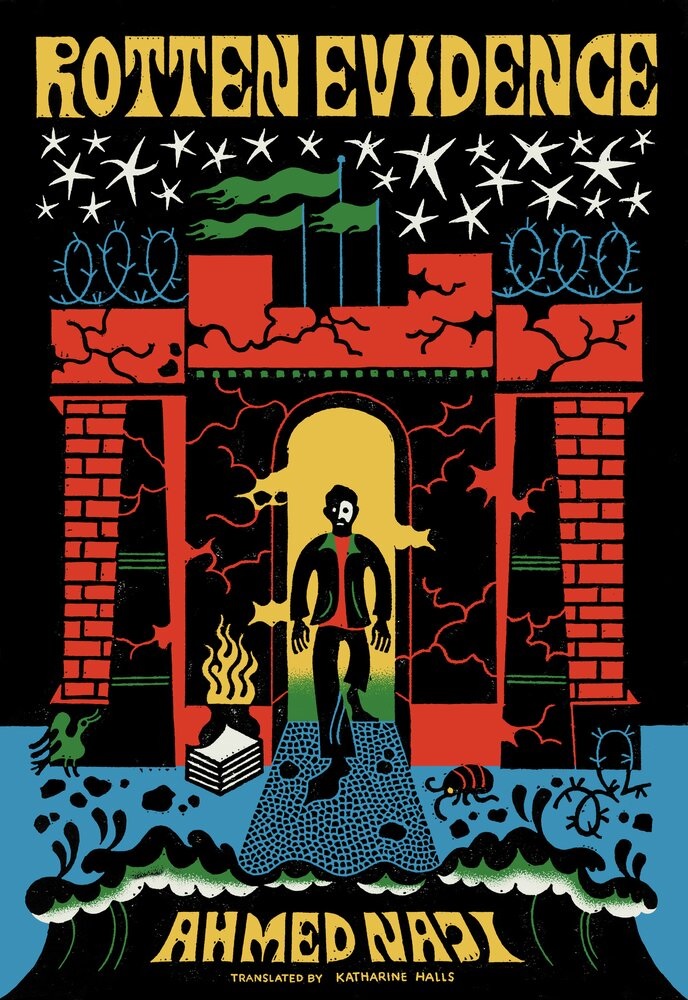 Book you're an evangelist for:
Book you're an evangelist for:
Currently, all David Graeber books, especially his last one, published with David Wengrow, The Dawn of Everything: A New History of Humanity. Discovering his works four years ago was a turning point. Reading Graeber makes the world look different. His historical research changed the way I understand our current moment, and led to a profound shift in my perspective.
Book You've bought for the cover:
The Many Deaths of Laila Starr by Filipe Andrade and Ram V. It's a graphic novel, the cover haunted me when I first saw it. It turned out to be the perfect introduction to Indian comics and graphic novels.
Book you hid from your parents:
When my Mom was alive, I tried to hide my books from her.
Book that changed your life:
It's very hard to pick one! So I will be cheeky and highlight two. First, Hopscotch (the original Spanish title is Rayuela) by Julio Cortázar. I was a young poet when I read it for the first time. It was the book that made me want to write novels, and after reading it, I decided to become novelist. Anti-Oedipus: Capitalism and Schizophrenia by Gilles Deleuze and Félix Guattari. Reading and discovering this in 2013 saved me from depression and losing interest in life, it formatted my mind again.
Favorite line from a book:
"I only know two things: first, the world has been taken over by a bunch of bastards and murderers, and second, we shouldn't take it seriously because that's what they want." --La Violence et la Dérision by Albert Cossery (the English translation is titled The Jokers)
Five books you'll never part with:
Sargon Boulus, complete works of poetry
I, Etcetera by Susan Sontag
A marvelous and brave memoir by the Egyptian poet Fatma Kandil, which is not translated into English but should be. I read it two years ago, but scenes and lines from it still pop into my head.
The Threshold: Poems by Iman Mersal
The Origins of Totalitarianism by Hannah Arendt
Book you most want to read again for the first time:
The Book of Disquiet by Fernando Pessoa. I was lucky to discover this book at a young age; I think I was 18 years old. The book and Pessoa's writing in general helped me several times in my life. When I first read it, it became one of my meditation books. I developed this theory of book meditation after reading this book for the first time. It's a book that you can read from any page, and forget yourself while reading, so it helps me if I am sad or in grief or even depressed.
Book Candy
Book Candy
WDTN tells the story of a Delta pilot who returned a children's book--If the Shoe Fits by Sarah Mlynowski--found at the airport in Atlanta to a Kansas library and offered to pay any fines because "I do not feel anybody should ever be penalized for enriching their life with a book."
---
Marie Curie's research papers are still radioactive a century later, Open Culture reported.
---
Mental Floss remembered "When Clockwork Orange author Anthony Burgess wrote a slang dictionary."
Rediscover
Rediscover: A.S. Byatt
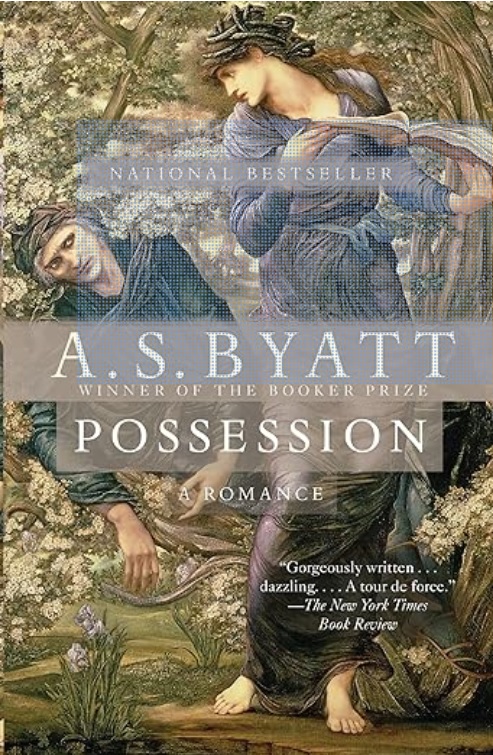 British author, critic, and Booker winner A.S. Byatt (Dame Antonia Susan Duffy), "one of the most significant writers and critics of our time," died November 16 at age 87. Born Antonia Drabble, Byatt studied English at Cambridge, Bryn Mawr College, and Oxford. She began teaching at University College London in 1962. The Guardian noted that her first novel, The Shadow of the Sun, was published in 1964, just a year after A Summer Bird-Cage, the first novel by her sister, Margaret Drabble, "thus establishing the notorious and possibly exaggerated rivalry between them."
British author, critic, and Booker winner A.S. Byatt (Dame Antonia Susan Duffy), "one of the most significant writers and critics of our time," died November 16 at age 87. Born Antonia Drabble, Byatt studied English at Cambridge, Bryn Mawr College, and Oxford. She began teaching at University College London in 1962. The Guardian noted that her first novel, The Shadow of the Sun, was published in 1964, just a year after A Summer Bird-Cage, the first novel by her sister, Margaret Drabble, "thus establishing the notorious and possibly exaggerated rivalry between them."
Byatt's reputation grew as she embarked on the Frederica Quartet, charting the changing nature of the female experience in the 20th century with the novels The Virgin in the Garden (1978), Still Life (1985), Babel Tower (1996), and A Whistling Woman (2002). "When she broke off in the middle of this project to write Possession, Byatt found both critical acclaim and a new audience," the Guardian noted. Possession won the Booker prize in 1990, becoming a bestseller both in the U.K. and U.S. The Children's Book (2009) was shortlisted for the Booker Prize and won the James Tait Black Memorial Prize.
The recipient of many awards, Byatt became a CBE in 1990 and a DBE in 1999. In 2014, a coleopterist working in Central and South America named a species of iridescent beetle in her honor (Euhylaeogena byattae Hespenheide), inspired by her portrayal of naturalists in the novella "Morpho Eugenia" in Angels and Insects (1992). Byatt received the Erasmus Prize in 2016, awarded by the King of the Netherlands.
"She was also remarkable for her generosity to younger writers," the Guardian said. "At a stage of her career when she might well have been excused for finding her own professional commitments a sufficiently heavy workload, she read new work voraciously. Her floorboards cracked under the load of novels and poems sent to her by writers and publishers who valued her approval far above that of reviewers. She could not possibly have read all of them, but she read an astonishing number."
Writing in the Guardian, Lisa Allardice observed: "She loved Europe, tennis, science, art and languages. 'I think the virtue I prize above all others is curiosity,' she told an interviewer. It is this rapacious curiosity that she brought to her 10 novels, many works of criticism and essays, and in so doing she helped change the British novel into something far more intellectually capacious and outward-looking. Hers was a life defined by literature. 'I'm more interested in books than people, and I always expect everybody else to be, but they're not.' The Dame will be greatly missed."


